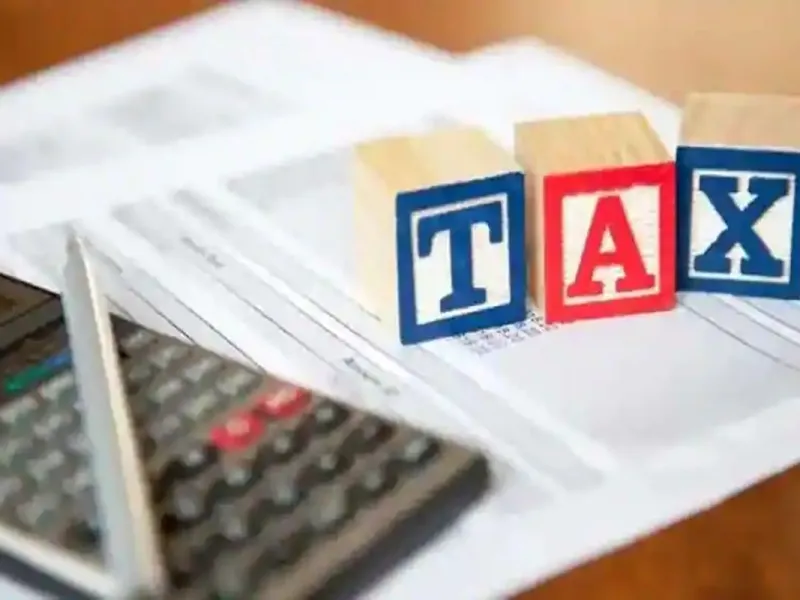Understanding Section 10(23E) to 10(23EE) of the Income Tax Act: Tax Exemptions for Specific Funds
Introduction
The Indian Income Tax Act, 1961, provides various tax exemptions to support specific funds aimed at protecting investors and ensuring market stability. Sections 10(23E) to 10(23EE) outline exemptions for different types of Investor Protection Funds and Core Settlement Guarantee Funds. This blog delves into these sections to help you understand their implications and benefits.
Section 10(23E): [Repealed]
Section 10(23EA): Income of Investor Protection Fund of Stock Exchanges
Overview:
Exemption:
Contributions received from recognized stock exchanges and their members to the Investor Protection Fund are exempt from income tax, as specified by the Central Government through a notification in the Official Gazette.
Taxation on Distribution:
If any amount credited to the Fund and previously exempt from income tax is shared with a recognized stock exchange, that amount becomes taxable in the year it is shared.
Key Points:
- Promotes the growth of Investor Protection Funds.
- Ensures that contributions to these funds are not subject to immediate taxation.
- Any distributed amount becomes taxable, maintaining fiscal accountability.
Section 10(23EB): [Repealed]
Section 10(23EC): Income of Investor Protection Fund of Commodity Exchanges
Overview:
Exemption:
Contributions received from recognized commodity exchanges and their members to the Investor Protection Fund are exempt from income tax, as specified by the Central Government.

Taxation on Distribution:
Similar to Section 10(23EA), if any amount credited to the Fund and previously exempt from income tax is shared with a commodity exchange, that amount is taxable in the year it is shared.
Definition:
A “commodity exchange” refers to a “registered association” under the Forward Contracts (Regulation) Act, 1952.
Key Points:
- Encourages contributions to commodity exchange Investor Protection Funds.
- Supports financial stability within commodity markets.
- Ensures transparency and accountability through taxation of shared amounts.
Section 10(23ED): Income of Investor Protection Fund of Depositories
Overview:
Exemption:
Contributions received from a depository to its Investor Protection Fund are exempt from income tax, as specified by the Central Government.
Taxation on Distribution:
If any amount credited to the Fund and previously exempt from income tax is shared with a depository, it becomes taxable in the year it is shared.
Definitions:
Depository:
Defined under the Depositories Act, 1996.
Regulations:
Refers to regulations under the Securities and Exchange Board of India Act, 1992, and the Depositories Act, 1996.
Key Points:
- Strengthens the financial integrity of depositories.
- Promotes the accumulation of resources in Investor Protection Funds.
- Ensures proper taxation of shared funds.
Section 10(23EE): Income of Core Settlement Guarantee Fund of Clearing Corporations
Overview:
Exemption:
Any specified income of the Core Settlement Guarantee Fund set up by a recognized clearing corporation is exempt from income tax, as specified by the Central Government.
Taxation on Distribution:
If any amount credited to the Fund and previously exempt from income tax is shared with a specified person, it becomes taxable in the year it is shared.
Definitions:
Recognized Clearing Corporation:
Defined under the Securities Contracts (Regulation) (Stock Exchanges and Clearing Corporations) Regulations, 2012.
Regulations:
Refers to the Securities Contracts (Regulation) (Stock Exchanges and Clearing Corporations) Regulations, 2012.
Specified Income:
Includes contributions received, penalties imposed by the clearing corporation, and income from investments made by the Fund.
Specified Person:
Includes recognized clearing corporations, recognized stock exchanges being shareholders or contributors, and clearing members contributing to the Fund.
Key Points:
- Ensures the financial robustness of clearing corporations.
- Promotes the accumulation of funds for settlement guarantees.
- Maintains fiscal discipline through the taxation of shared amounts.
Frequently Asked Questions (FAQs)
Q1: What is the main purpose of Section 10(23E) to 10(23EE) of the Income Tax Act?
A1: These sections provide tax exemptions for specific Investor Protection Funds and Core Settlement Guarantee Funds to encourage contributions, support financial market stability, and protect investor interests.
Q2: How does Section 10(23EA) benefit stock exchanges?
A2: Section 10(23EA) exempts contributions received by the Investor Protection Fund from recognized stock exchanges and their members from income tax, promoting fund growth without immediate tax liabilities.
Q3: What happens if the exempted amount from the Investor Protection Fund is shared with a stock exchange?
A3: If any previously exempted amount is shared with a recognized stock exchange, it becomes taxable in the year it is shared, ensuring fiscal accountability.
Q4: Are there any specific regulations for commodity exchanges under Section 10(23EC)?
A4: Yes, a “commodity exchange” is defined as a “registered association” under the Forward Contracts (Regulation) Act, 1952. Contributions to these funds are also exempt from income tax as specified by the Central Government.
Q5: What defines a “depository” under Section 10(23ED)?
A5: A “depository” is defined under the Depositories Act, 1996. Contributions to the Investor Protection Fund of a depository are exempt from income tax.
Q6: Who benefits from the tax exemptions under Section 10(23EE)?
A6: The Core Settlement Guarantee Fund set up by recognized clearing corporations benefits from these exemptions. Specified incomes, such as contributions and penalties, are exempt from income tax.
Q7: How does the taxation on shared amounts maintain fiscal discipline?
A7: By taxing any shared amount that was previously exempt, these provisions ensure that funds are used appropriately and that there is transparency and accountability in financial transactions.
Conclusion
Sections 10(23E) to 10(23EE) of the Income Tax Act provide crucial tax exemptions to various Investor Protection Funds and the Core Settlement Guarantee Fund. These exemptions foster the growth and stability of financial markets by encouraging contributions and ensuring that these funds can operate effectively without immediate tax burdens. Understanding these provisions helps stakeholders in making informed decisions and promoting transparency and accountability in the financial sector.
For more detailed explanations of specific sections of the Income Tax Act, visit our comprehensive guides on SmartTaxSaver.

Leave a Reply